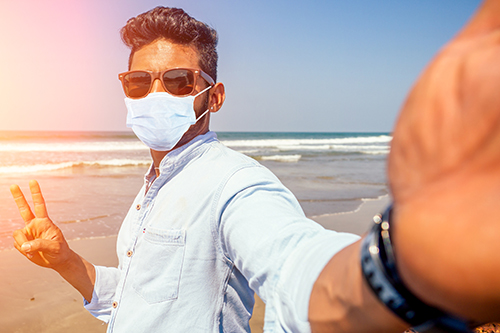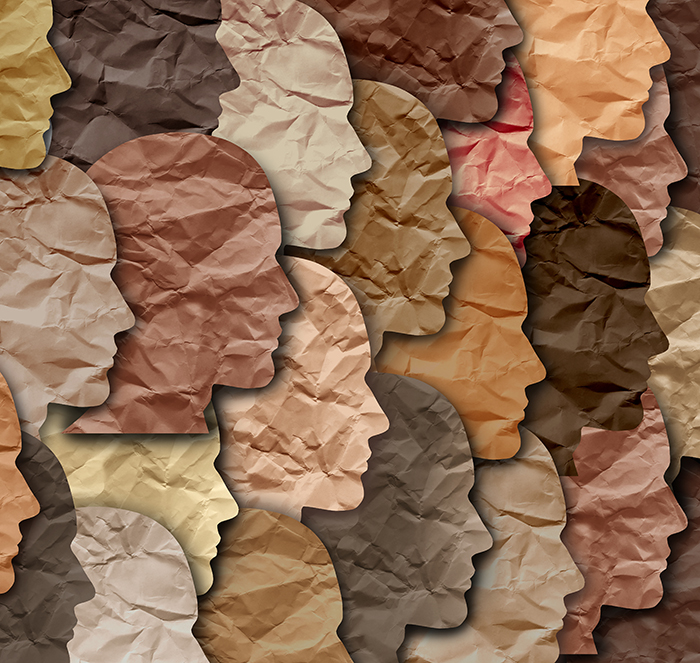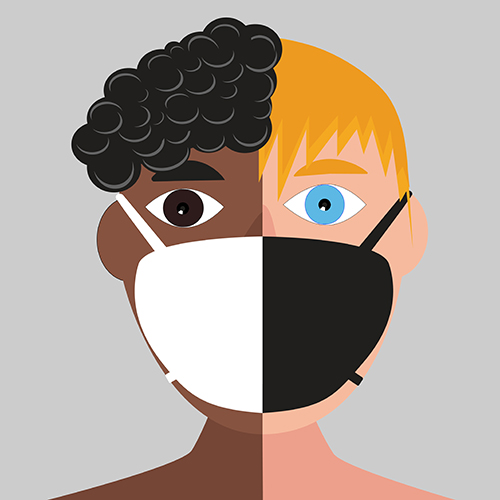The Latino community calls for action amid high COVID-19 rates
Posted on August 14, 2020
 When restaurants reopened last month, waiter Tino López faced a difficult decision: to stay home and forgo a paycheck or risk exposure to the novel coronavirus by returning to work. López was riding the bus to work in Pike Place Market as the reality of his dilemma as an uninsured immigrant set in.
When restaurants reopened last month, waiter Tino López faced a difficult decision: to stay home and forgo a paycheck or risk exposure to the novel coronavirus by returning to work. López was riding the bus to work in Pike Place Market as the reality of his dilemma as an uninsured immigrant set in.
In light of state regulations, López’s work hours were drastically reduced because of the restaurant’s limited capacity. On his first week back to work in three months, he made about $200 — less than he usually collected during a bad shift prior to the pandemic, López said.
The risk outweighed the payoff, in López’s eyes. “It’s not worth it going into the restaurant because I’m not making money,” said López. So he quit after a few weeks.
As an immigrant from Mexico, López said he is hyperaware of the disproportionate impact of COVID-19 on his community. While Latinos are 13% of Washington’s population, they comprise 44% of the state’s positive COVID-19 cases. The second-highest rate of positive cases is among white residents, who make up nearly 70% of the state’s population.
In recent months, politicians, county and public health officials have grappled with difficult questions around equity: Why are cases so high among the Latino population and how can the positive rate of infection be reduced?
Contributing factors such as poverty, housing discrimination, system inequities within public health care, and proximity to food deserts underlie the high rate of COVID-19 cases within King County’s Latino population, said Fernando Luna, interim deputy director of Seattle-based nonprofit Entre Hermanos, which focuses on the well-being of the Latino LGBTQ community. Essential workers in the service industry or construction who live in multigenerational housing have difficulty physically isolating if they become infected, he added.
“Race, gender and your ZIP code have been a predictor of success and failure in society for a very long time,” said Digna Saad, Entre Hermanos’ executive director. “So why would it be any different with COVID-19?”
Still, López considers himself lucky. While most people he knows within his community live in multigenerational homes in South King County, where they can afford cheaper rent, López lives in a two-bedroom apartment with his employed husband and a dog. He has the luxury of taking time off to search for other work and is considering changing industries.
While they await the discovery of a vaccine, Entre Hermanos and other organizations have joined coalitions to provide on-the-ground support to the state’s Latino population. For many within the impacted community, the disparity has highlighted the need for policy reform that addresses the roots of inequity.
Undocumented immigrants have been hit especially hard during the pandemic, given that they are barred from participating in unemployment benefits as well as the Paycheck Protection Program, and did not receive a federal stimulus check. U.S. citizens with undocumented spouses and parents were also denied the federal stimulus check.
Additionally, undocumented people are not covered by federal health programs and therefore are less likely to have a health care provider, said Matías Valenzuela, equity director for Public Health – Seattle & King County.
“Also many of the health services are not culturally responsive, which creates distrust and less likelihood that people will access health and preventive services,” Valenzuela added.
Federal immigration policies have exacerbated the public health crisis for immigrants, said consultant Eric Holzapfel. He serves on COVID-19 advisory groups for Public Health and Seattle Foundation, where he advocates for people of Latin American descent. The federal Department of Homeland Security may reject immigrants’ green card or visa applications if the applicants are deemed likely to use public benefits such as Medicaid, under the Trump administration’s public charge rule.
According to the rule, public benefits include Temporary Assistance to Needy Families, Supplemental Nutrition Assistance Program, and some housing programs. Programs not considered public benefits include Head Start, homeless shelters, emergency medical assistance and food pantries.
“It’s created a huge chilling effect for people to access public benefits” said Holzapfel. The public charge rule has sown further distrust in institutions for many immigrants who are at risk of exposure to COVID-19, he added.
The complexity of the rule has discouraged many people from applying for benefits they may otherwise qualify for because they are uncertain what programs could disqualify them from receiving a green card or visa, Holzapfel said.
“Because we have systems of overlapping governments … people aren’t able to make distinctions between what is state, what is local and what is a federal benefit,” Holzapfel said. On Wednesday, a judge issued two nationwide injunctions blocking the public charge rule during the COVID-19 pandemic, allowing immigrants to access public benefits for the time being.
The county’s public health department has convened task forces and groups to spread education on available programs as well as to deepen their understanding of the local Latino community’s needs. For example, a Latinx Community Response Team led by county employees holds a weekly webinar in Spanish on Zoom that is livestreamed to Facebook, where they discuss topics such as the public charge rule. The department has also assembled Spanish-speaking navigators and leaders called “promotoras” who educate on prevention and provide input to officials.
During the pandemic, Entre Hermanos staff have met with politicians to discuss their members’ needs, and they continue to offer testing for sexually transmitted infections at their office in Seattle’s Central District. The nonprofit has offered rental assistance to some of its members and plans to hold a community drive to distribute protective gear such as masks within the next month.
Some of the members don’t have a TV, so the organization’s weekly Spanish radio program “Mucho Gusto” provides COVID-19 updates. “Radio continues to be the main form for them to attain information,” said Saad.
Seattle-based nonprofit El Centro de la Raza also disseminates public health information through its own weekly KKMO radio program that airs in Spanish. Although the organization’s Beacon Hill and Federal Way buildings are locked, its food bank remains in operation, groceries are delivered to elders, and free hot meals can be picked up from the office. Earlier this month, the Federal Way staff and the city’s Chamber of Commerce held a drive-in at the nonprofit’s parking lot to distribute face masks, hand sanitizer and gloves. Their after-school program has moved to Zoom so students can continue learning from home.
The center’s early childhood development program, which is available in three locations throughout Seattle five days a week for the children of essential workers, is taking additional precautions. El Centro de la Raza practices its own form of contact tracing by logging children’s temperatures and their names, as well as any other visitors, said executive director Estela Ortega. “We keep that information just in case we have to do some tracing,” Ortega said. “I’ve been up there numerous times and they check my temperature, too,” she added, laughing.
This summer, El Centro de la Raza plans to conduct a public health survey for residents of eight cities in King County, which they hope will further shed light on the pandemic’s impact on the Latino population.
Local hospitals have also adjusted their services in consideration of the pandemic’s disproportionate impact on immigrants. As a cultural mediator for Community House Calls program at Harborview Medical Center, Rose Cano has acted as an interpreter, social worker, advocator, and liaison between the health care system and her patients for nearly a decade. During the pandemic, she has coached her patients in how to download Zoom on their phones for medical appointments, has remotely helped them apply for aid, and researched shelters with openings for people experiencing homelessness. Most recently, she’s volunteered to offer mock interviews with contact tracers employed by Public Health – Seattle and King County.
“I think our community has felt very isolated and anxious,” Cano said. “For the Latino community, there were already high stress levels [with] fearing deportation and public charge and now there’s an income crisis.”
Because she works in a hospital, she’s also been unable to see her 95-year-old mother who lives on her own with caregivers for the past three months. “We’re so family-oriented. … Latino elders are suffering a lot, as are people with disabilities,” Cano said.
Heeding calls from organizations to expand aid to immigrants, the state has offered a disaster cash assistance program to Washington residents which has provided money for some families facing emergencies, and does not require recipients to have a social security number. Launched in April, recipients are eligible to receive benefits ranging from a maximum of $363 for one person to $1,121 for a large household during one month out of the year. The expansion of the moratorium on rental evictions through Aug. 1 has also been beneficial, said Saad from Entre Hermanos.
Ultimately, Saad hopes that the collective efforts to address systemic inequities will continue long after a cure to COVID-19 is discovered. She believes the novel coronavirus has served as a reminder of the world’s interconnectedness.
“If somebody else gets sick, I could also get sick. It brought all of us together under the fabric of being human beings,” Saad said.
She has a remaining wish: “What I would like is for organizations and government to remember us after we conquer the pandemic.”
Melissa Hellmann: 206-464-2168 or mhellmann@seattletimes.com; on Twitter: @M_Hellmann. Seattle Times staff reporter Melissa Hellmann covers South Seattle and South King County with a focus on marginalized communities.
SEE ALSO:
More Mental Health Articles
Sexual Bias Articles
Race Relations Articles
How Drugs and Alcohol Affect the Brain and Body
WA. Counselor Directory: find a therapist near you
How helpful is this web page to you?
(and how can we can improve this page for you?)
not helpful
very helpful
Other Articles
Race in America: policing, kneeling
Letters to the Editor, Northwest Voices, Opinion
Change policy culture “How police unions became such powerful opponents of change” [June 6, Nation), misses options to change police culture before officer contact with a union. The polic... read more
How history has led to an extraordinary moment
Aaron Dixon has seen a lot in his 71 years. The leader of Seattle’s Black Panther Party in the height of the turbulent 1960s, Dixon lived through the uprisings after the murder of the Rev. Dr. Martin L... read more
To understand structural racism, look to our schools.
Education Lab - Local News
Education Lab is a Seattle Times project that spotlights promising approaches to persistent challenges in public education. It is produced in partnership with the Solutions Journalism Network and is funded b... read more
Racial Inequity of Coronavirus
Teresa and Marvin Bradley can’t say for sure how they got the coronavirus. Maybe Ms. Bradley, a Michigan nurse, brought it from her hospital. Maybe it came from a visiting relative. Maybe it was someth... read more




